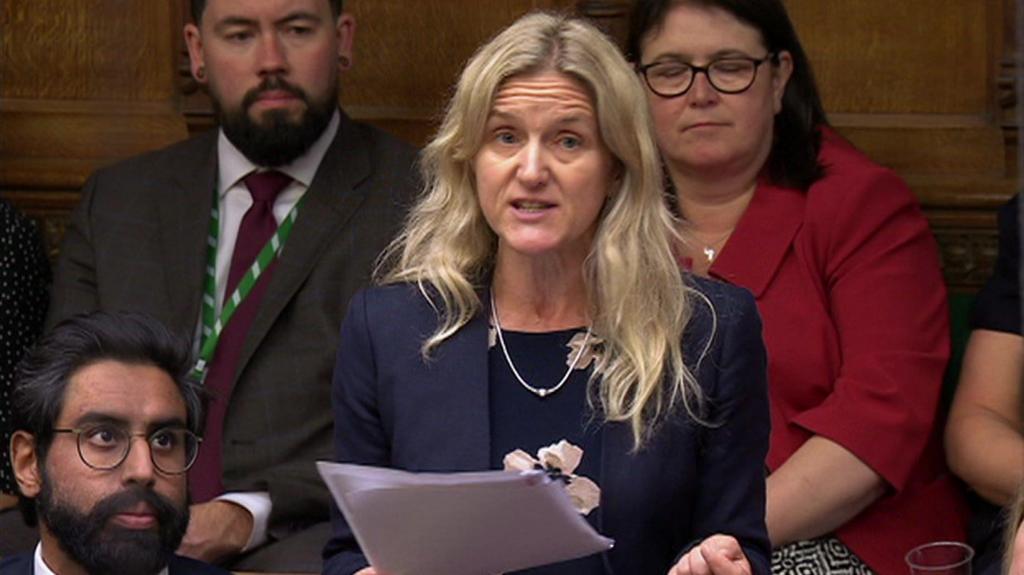Members of Parliament (MPs) voted to prevent healthcare professionals from initiating discussions about assisted dying with minors. This decision occurred during ongoing parliamentary review of the Terminally Ill Adults Bill.
The bill, if passed, would permit medically assisted dying only for adults in England and Wales, aged 18 or older, with a life expectancy of under six months.
Labour MP Meg Hillier, who proposed the amendment, highlighted the potential risk of extending assisted dying legislation to encompass children and young people.
Despite opposition from bill proposer Kim Leadbeater, the amendment passed by a vote of 259 to 216, marking Leadbeater’s first defeat on the bill in the House of Commons, though prior defeats occurred during committee stages.
A statement from a group of concerned Labour MPs characterized the outcome as a “vote of no confidence,” undermining claims that the bill represented the safest approach globally.
Conservative MP Neil Shastri-Hurst, a bill supporter, opposed the amendment, arguing it could isolate vulnerable young people, forcing them to rely on online sources rather than qualified professionals.
Another amendment by Hillier, aiming to prohibit healthcare professionals from raising the topic of assisted dying with any patient, was defeated 256 to 230.
Further amendments passed included a ban on advertising assisted dying services and a provision ensuring assisted deaths under the bill wouldn’t automatically trigger a coroner’s inquest.
The bill, initially approved in November with a 55-vote majority, has faced increased scrutiny, with at least a dozen MPs who previously supported or abstained now indicating their intention to vote against it.
Despite this, proponents remain confident the bill will ultimately become law. Friday’s debate largely focused on the bill’s practical implementation rather than the broader principle of assisted dying.
There was broad agreement on prohibiting advertising, although some MPs advocated for stricter regulations. Leadbeater’s amendment, mandating ministerial oversight of advertising with potential exemptions, was adopted.
Labour MP Paul Waugh unsuccessfully sought to remove ministerial discretion, warning against potential misuse. Labour MP Tony Vaughan countered that this flexibility was essential.
Waugh’s amendment was defeated, while Leadbeater’s passed. Leadbeater’s amendment preventing automatic coroner’s inquests also secured parliamentary approval, overcoming opposition from Conservative MP Rebecca Smith who raised concerns about oversight.
Green MP Ellie Chowns argued that the existing scrutiny processes made further investigation unnecessary. Prior to this, MPs agreed to amendments addressing the replacement of unwilling doctors and mandating physician reports concerning proposed assisted deaths.
Conservative MP Kieran Mullan expressed concern over insufficient parliamentary time allocated to this significant legislation. Health Minister Stephen Kinnock responded, highlighting the extensive debate and amendments considered.
Liberal Democrat Christine Jardine criticized perceived attempts to delay the voting process, characterizing them as “petty and childish.”
Further debate is scheduled for June 20th, determining whether the bill proceeds to the House of Lords or is defeated.
Parliament has been advised cats would face risks, including from construction and self-closing doors.
Votes on assisted dying and abortion mean that MPs are making their own decisions.
As MPs debate whether to legalise assisted dying, we speak to those providing end-of-life care.
Upgrades to the Peers’ Entrance have been branded a “white elephant and a disaster”.
Separate bills to let terminally ill people end their life are being considered at Westminster and in Scotland.

